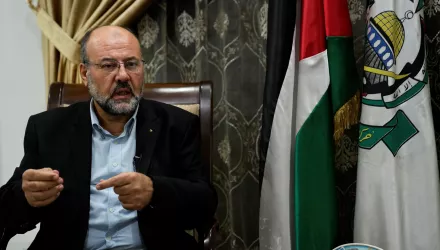After the September 11, 2001, attacks, governments throughout the world rushed to improve their counterterrorism policies. Several countries tightened legislation, increased resources available to their intelligence and law enforcement agencies, and established repressive policies to uncover and prosecute terrorist networks. Policymakers, fearing an imminent attack, understandably focused their attention on aggressive methods. Yet, over the last few years, many governments have started thinking about more nuanced, comprehensive, and long-term counterterrorism policies, understanding that simply trying to dismantle terrorist networks is like playing a never-ending game of "whack-a-mole," unless steps are also taken to prevent the radicalization of scores of potential new militants.
Several Muslim countries have formulated various programs to fight extremism. From Saudi Arabia to Indonesia, authorities have devised more or less comprehensive measures to deradicalize committed militants and prevent the radicalization of new ones. This soft approach to counterterrorism has also been adopted by some European governments. The 2004 Madrid and 2005 London attacks, as well as the arrest of hundreds of European Muslims who had been involved in a variety of terrorist activities, have clearly shown that radicalization is a problem in Europe. Over the last few years, various European governments have decided to combat radicalization processes among their Muslim population by enacting various counterradicalization programs, acknowledging that they cannot simply arrest their way out of the problem. Initiatives vary from convening interfaith meetings to creating government-funded Muslim magazines and TV channels, from promoting lectures of Muslim clerics exposing the theological flaws of al Qaeda's ideology to mentoring projects and professional development seminars.
A crucial component of the programs enacted in all European countries is the participation of the Muslim community itself, which is deemed a necessary ally to stem radicalization among its youth. Yet, the Muslim community of each European country is characterized by deep divisions along ethnic, linguistic, sectarian, and political lines. This fragmentation has prevented the formation of widely representative Muslim organizations in virtually all European countries. "When government officials look for a responsible interlocutor," one commentator perfectly summarized, "they find that the Muslim voice is a cacophony rather than a chorus." European authorities face a difficult challenge in their choice of which of the many and often competing Muslim organizations they should partner in their counterradicalization programs.
A source of particularly heated debate among policymakers is the role that could be played in these programs by nonviolent Islamists, such as European Muslim organizations that trace their ideological roots to various forms of political Islam. Hardly a homogeneous category, they include movements that range from those that publicly express their desire to participate in the democratic process, such as offshoots of the Muslim Brotherhood of Egypt and the Jamaat-e-Islami of Pakistan, to others such as political Salafists, who openly reject secular democracy but still oppose the use of violence against the West....
Vidino, Lorenzo. “Europe's New Security Dilemma.” Washington Quarterly, October 2009
The full text of this publication is available via Washington Quarterly.



